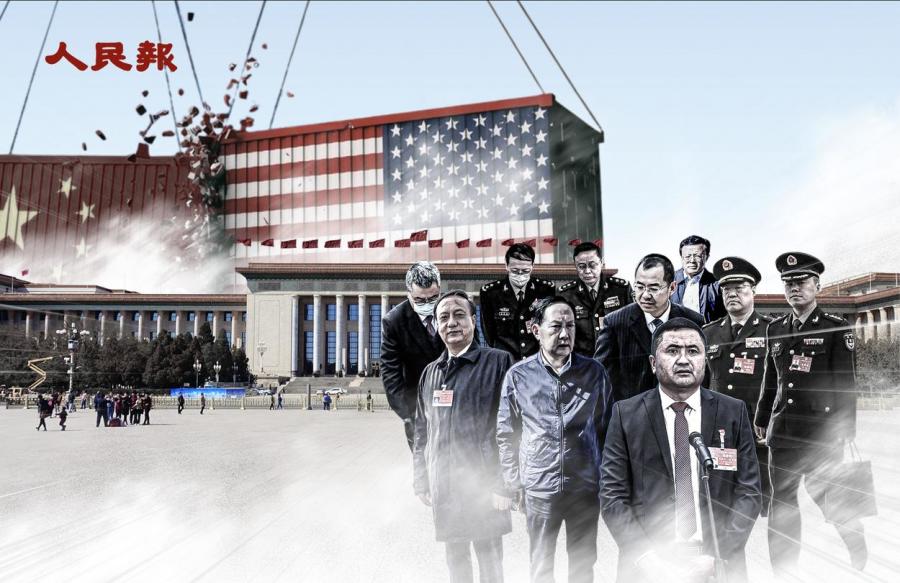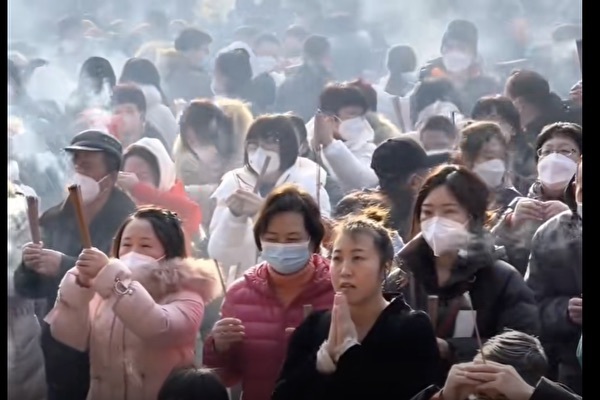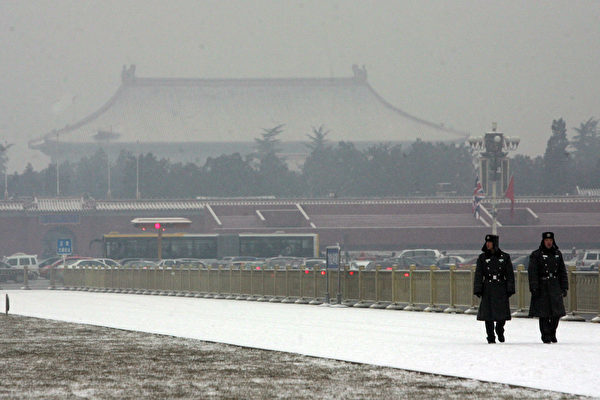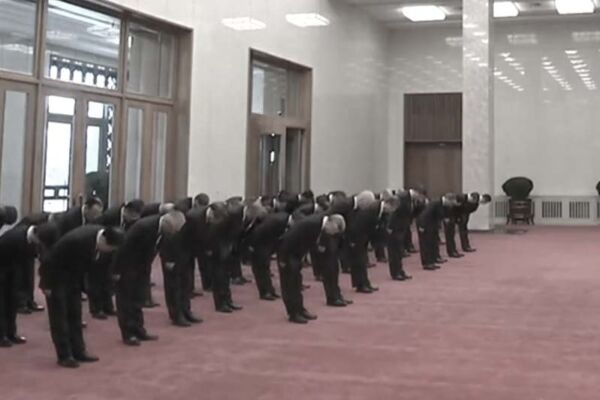Will the CCP Hold the Most Disastrous Two Sessions in History? (Illustration by People News)
[People News] Amid the turbulent and unpredictable state of Chinese Communist Party (CCP) politics, an unusually high-level personnel reshuffle took place on April 2. Shi Taifeng, 68, who had been serving as head of the United Front Work Department (UFWD), was appointed as the new head of the CCP Central Organization Department. Meanwhile, Li Ganjie, 60, the former head of the Organization Department, was transferred to lead the United Front Work Department. After this news broke in overseas media, the CCP state media quickly confirmed the swap.
Within the CCP system, the head of the Organization Department, which holds the power over the promotion and dismissal of high-ranking officials, occupies a highly important position. Typically, the post is held concurrently by a member of the Politburo, making it equivalent to a vice-national level leadership role. Because of its significance, many notable figures in CCP history have held this post.
Mao Zedong was the first Minister of the Organization Department of the Communist Party of China (CPC). In 1921, during the First National Congress of the CPC, the Central Work Department was established to handle personnel matters, with Zhang Guotao appointed as the head of the organization. In May 1924, the CPC held its first enlarged Executive Committee, officially creating departments such as organization and propaganda, marking Mao Zedong as the first true Minister of the Organization Department. At the Fourth National Congress of the CPC in 1925, Chen Duxiu succeeded Mao in this role. Following him, Li Weihan, Luo Yinan, Zhou Enlai, and Kang Sheng also served as Ministers of the Organization Department at different times.
After the Kuomintang's 'cleansing of the party', the survival of the CPC became paramount, prompting them to disperse into remote mountainous areas that were hard for the National Government's army to access, resulting in a lack of formal organizational work. It was only when the CPC fled north to Yan'an under the siege of the National Government that they took advantage of the National Government's full-scale resistance against Japan, allowing the CPC's organizational development to enter a relatively normal phase.
In the early days of Yan'an, Zhang Wentian, Guo Hongtao, and Bo Gu briefly held the position of Minister of the Organization Department. In December 1937, Chen Yun took over the role and held it until 1944, during which he identified and recruited a significant number of intellectuals from the National Government-controlled areas as cadres, thereby strengthening the CPC. Following him, Peng Zhen took over. After the CPC established its government in 1952, Rao Shushi succeeded Peng Zhen.
In 1954, due to the baseless 'Gao Gang and Rao Shushi Anti-Party Alliance Incident', Rao Shushi was dismissed from his position and subsequently arrested and imprisoned, with Deng Xiaoping assuming the role. Under Deng's leadership, the Organization Department established a cadre training office, organizing over ten thousand cadres at the level of county committee secretaries and above for theoretical training. In 1956, An Ziwen succeeded him, continuing until the Cultural Revolution erupted in 1966.
Following the end of the Cultural Revolution, Hu Yaobang was appointed Minister of the Organization Department in December 1977, marking a gradual return to normalcy for the department's operations. Hu's primary responsibility was to 'rehabilitate' officials at various levels, with the most notable cases being the '61-person case' and the rehabilitation of Xi Zhongxun.
A year later, Song Renqiong took over from Hu Yaobang and served as Minister for five years. Subsequent holders of this position included Chen Yepin, Qiao Shi, Wei Jianxing, Song Ping, Lü Feng, Zhang Quanqing, Zeng Qinghong, He Guoqiang, Li Yuanchao, Zhao Leji, and Chen Xi. As a close ally of Xi, Chen Xi passed this significant role to his protégé Li Ganjie upon his departure, clearly aiming to assist Xi in selecting high-ranking officials loyal to him. This explains why, prior to Xi's serious illness last July, Li Ganjie was frequently seen accompanying Xi on his research trips.
Currently, Li Ganjie, who once wielded considerable power over the fates of high officials, has been 'demoted' to the relatively less influential United Front Work Department, further indicating that Xi has lost his authority in personnel matters. While Shi Taifeng has seen continuous promotion during Xi's tenure, it is important to remember that he previously served as Vice President of the Party School of the Central Committee and Minister of the Organization Department, having a decade-long association with Hu Jintao, who had supported him. If Hu and Wen are currently in control, Hu's decision to appoint Shi Taifeng—who has experience in the Organization Department—to lead it again suggests a strategic reshuffling of personnel. The significance of Shi Taifeng's position is clear. This shift further reinforces the notion that control over Zhongnanhai does not rest with Xi, but rather with Hu, Wen, and others.
(Originally published by the People News)











News magazine bootstrap themes!
I like this themes, fast loading and look profesional
Thank you Carlos!
You're welcome!
Please support me with give positive rating!
Yes Sure!